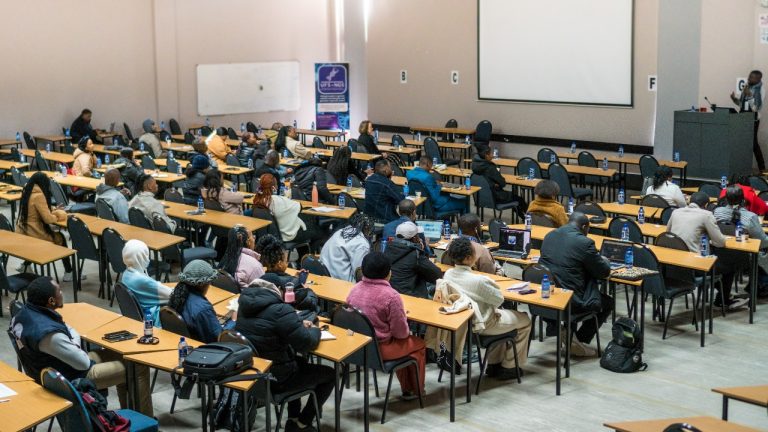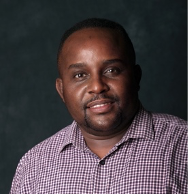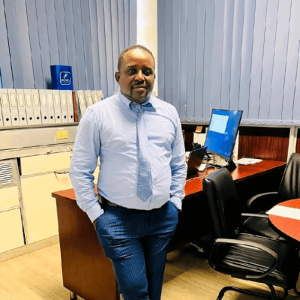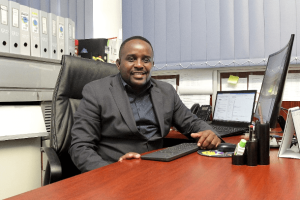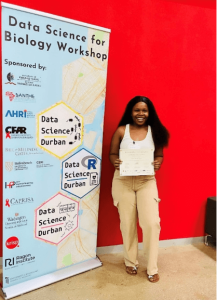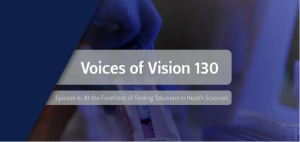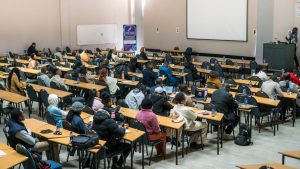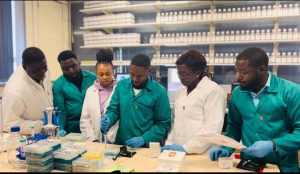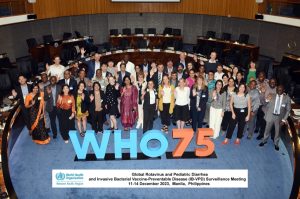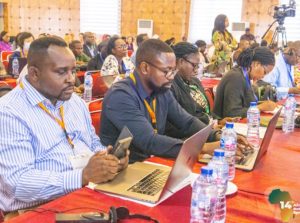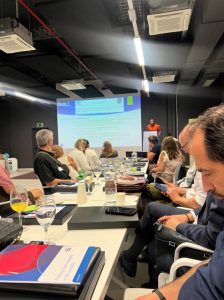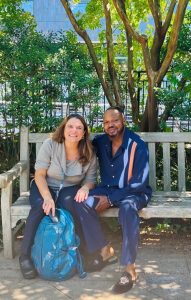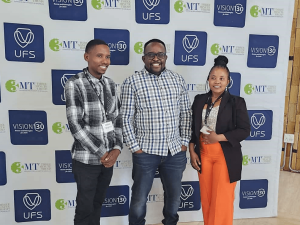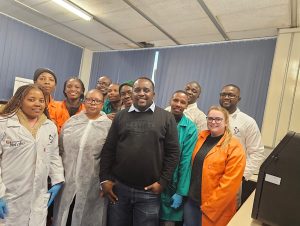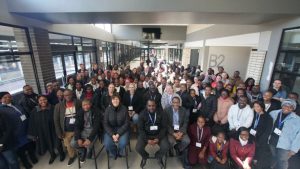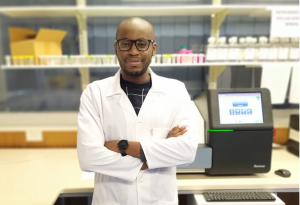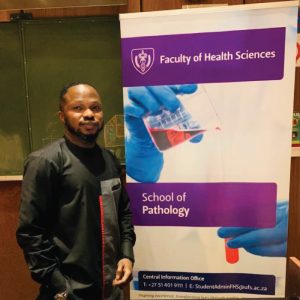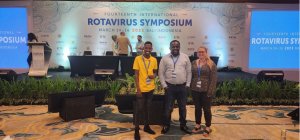In response to needs of a practical solution to the growing importance of integrating genomics into clinical practice, the University of the Free State – Next Generation Sequencing (UFS-NGS) Unit hosted an elevating forum titled “Integrating Genomics into Clinical Practice” on the 9th of July 2024. Led by Prof. Martin M. Nyaga, Associate Professor at the University of the Free State, Head of the UFS-NGS Unit and Director of the WHO CC, the forum brought together over 80 participants and speakers from South Africa, Kenya, and the USA. The forum was intended for health practitioners including doctors, nurses and public health officials among others. This was an effort to provide evidence-based information for health care practitioners (HCPs) on the efficiency of new advanced high throughput genomic testing using NGS in patients’ diagnoses and management including therapeutic interventions.
According to Prof. Martin M. Nyaga, research has shown that many HCPs are less familiar with the clinical applicability and benefits of genomic testing and have little confidence in providing genomics informed care and discussing genomics topics with their patients. “Limited physician knowledge of genomics testing is repeatedly cited as a barrier to the implementation of genomics in clinical practice. Furthermore, lack of HCP knowledge of technological advances in genomics has the potential to exacerbate health disparities in access to genomic testing among traditionally underserved populations. Besides, development of genomic-clinical based research by scientists, which is centred on patient disease diagnosis and care, will largely benefit from having practitioners with ample knowledge of patients’ diagnostics and choice of treatment,” said Prof. Nyaga in his opening remarks.
Prof Corlia Janse van Vuuren, Acting Dean for the Faculty of Health Sciences, welcomed and introduced the guests and re-emphasised the role the UFS-NGS Unit plays in supporting the World Health Organisation’s (WHO) mandate to promote health, prevent disease, and improve health equity, worldwide. This is being done through the development of evidence-based policies, guidelines, and strategies in areas such as disease control, health promotion, and emergency response, shaping global health agendas and priorities.
Featuring a line-up of exceptional experts, the forum was graced by Dr. Glen Taylor, Senior Director of Research and Internationalisation at UFS; and eminent speakers across different specialities. These includes Prof. Nickie Goedhals, affiliate researcher at the Division of Virology UFS and the Coordinator for Molecular Diagnostics at PathCare; Dr Kwe Claude-Yinda a research fellow at the Virus Ecology Section, National Institutes of Health (NIH) USA; Dr Milton Mogotsi a postdoctoral research specializing in paediatrics enteric infections at the UFS-NGS Unit; Dr Fredy Simo a postdoctoral research fellow specialising in arbovirus infections at the division of virology UFS; Dr Natasha Kitchin a field application scientist at separations; Prof Veron Ramsuran an associate professor at UKZN, Prof Saheed Sabiu an associate professor specialising in computational systems Biology at DUT; Prof Champion Nyoni, a senior researcher at the UFS school of nursing; Prof. Lucy Gitonga, a leading expert in midwifery and nursing education, serving as the founding dean of the School of Nursing and Public Health at Chuka University, Kenya; and Prof. Kimesh Naidoo, Head of the Clinical Unit in Paediatrics and Academic Leader for the Registrar Programme at UKZN.
The speakers delivered captivating and insightful talks, from tracing the history of genomics and its impact on disease diagnostics to highlighting the importance of pharmacogenomics in developing indigenous treatments. They also explored the financial aspects and opportunities in genomic integration, discussed the perceived benefits of genomics in paediatric diseases, identified steps that should be taken in advancing diagnostic-clinical genomics, as well as emphasized the importance of genomic education for healthcare workers and students.
“What stood out for me were the captivating talks from Professors Nyoni and Gitonga who highlighted the importance of integrating genomic education in the Nursing curriculum and the power of interdisciplinary collaborations in appreciating the full benefits of genomic integration in clinical practice,” One participant said.
These presentations kept participants fully engaged and attentive, sparking enthusiastic questions and lively discussions! The event successfully underscored the importance of integrating genomics into clinical practice by emphasizing the critical role of genomics in patient diagnosis, management, and therapeutic interventions.
The organizing committee further extends their appreciation to Distribution Platform in Omics (DIPLOMICS), the Bill and Melinda Gates Foundation (BMGF), and the World Health Organization (WHO/AFRO) for making this event possible, their support and commitment to advancing scientific research in Africa.
Written by: Sesiyanda Maseko
Edited by: Prof. Martin Nyaga, Mr. Kennedy Chibesa and Dr. Emmanuel Ogunbayo








